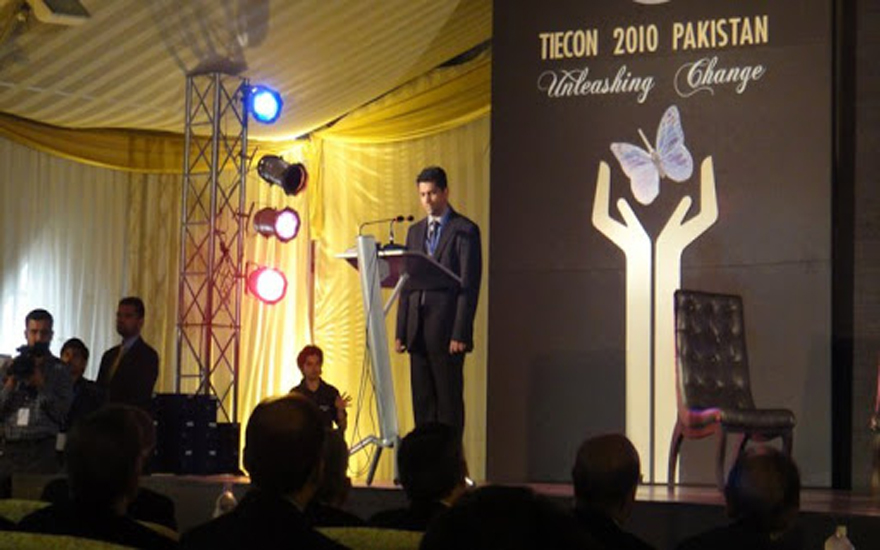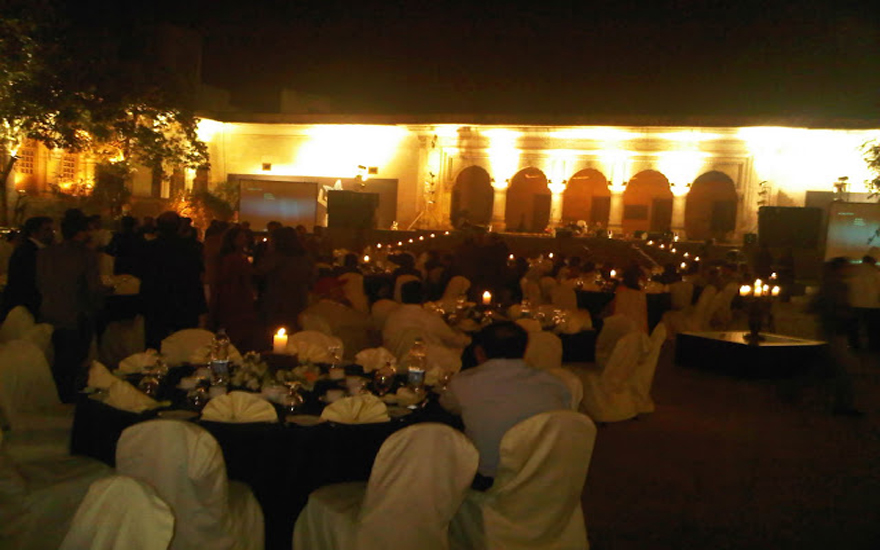Unleashing Change in Pakistan
By Abdulrahman Rafiq | Business | Published 13 years ago
Some say that Pakistan is exploding. Some call it the most dangerous place in the world without realizing that they are three times more likely to die in a car accident in the United States than to be killed in a bomb blast in Pakistan. Make no mistake, Pakistan is exploding. It is exploding with opportunity.
– Monis Rahman, TiECon 2010, Lahore, Pakistan
On October 29, 2010, entrepreneurs and business leaders from around Pakistan (and several from Silicon Valley) flocked to the historical and culturally rich city of Lahore. They came to Lahore not to sight-see, though that was indeed one of the attractive by-products of the visit. Instead they came here for the second annualTiECon 2010 business conference.
TiECon is the annual flagship conference of TiE (The Indus Entrepreneurs), hosted each year in California’s Silicon Valley. The theme for this year’s conference in Lahore was “Unleashing Change.”
TiE is a global non-profit organisation headquartered in Silicon Valley. The underlying mission of TiE is to promote entrepreneurship and business leadership through mentorship and business networking. TiE has 56 chapters around the world, with three chapters in Pakistan: Karachi, Lahore and Islamabad.
The conference was keynoted by several notable business and political leaders of Pakistan. They included Punjab’s chief minister, Shahbaz Sharif, the chairman of DESCON, Razzak Dawood, the former governor of the State Bank of Pakistan Dr Ishrat Husain (and now dean and director of the Institute of Business Administration) and the lone political warrior and social entrepreneur Imran Khan. The event curator was Monis Rahman, who is the CEO and chairman of Naseeb Networks and Rozee.pk. Syed Babar Ali, the prominent industrialist and philanthropist from Lahore, was the conference chairperson.

Monis Rahman presenting the opening speech at TiECon 2010 Pakistan in Lahore in October.
And despite the multitude of crises in Pakistan and the innumerable challenges in front of the country, an incredible sense of hope and optimism pervaded the messages and discussions offered at the conference. The conference was a call to action for business leaders and young entrepreneurs. It seemed that the common theme was this: “There is much work to be done. Are you prepared to do it?”
In his opening address, Monis stated: “Pakistan is the fastest growing country of mobile subscribers according to Morgan Stanley. It was the third fastest growing country of Internet users. We are blessed with a fertile land that has the potential of being the bread basket for the entire region. Most importantly Pakistan’s 180 Million people have the potential of becoming economic growth engines.” You can watch Monis’s talk below.
From my perspective as a delegate to the conference, I was impressed with the high level of organisation and overall professionalism that I experienced throughout the day. Overall the event was at par with many of the conferences I have been involved with in Silicon Valley.
However, I noticed a few blog posts on the web that criticised the conference and complained about its lack of engagement. The critics seem to have forgotten that TiECon is a platform which is designed to encourage interactivity. In this scenario attendees need to become proactive in their own engagement with the speakers. The platform is only as good as its membership. To reap the full benefits of the conference, one must come out of one’s shell and engage dynamically. The fact is invited speakers at a TiECon event, whether motivated by sense of social responsibility or otherwise motivated, are actually doing us a favor by showing up. As attendees the onus, therefore, is upon us to seize the moment and make the best use of it.
This reminds me of a remark Imran Khan made at the conference. He said, “…unless a society decides to stand up and raise its voice, and be politicised, only then can you bring about change.” Many in the audience seemed to be ticked off by this statement. This may be due to the generally held convention of avoiding political discussions at a ‘business only’ conference. But what he had to say is very much applicable to the current business and entrepreneurial environment in Pakistan. Further, as Imran Khan eloquently suggested, you cannot separate politics from business or any other facet of society. It is the case that politics is part of everyday life, particularly in an ethnically diverse and highly charged society like Pakistan.
So it was not surprising that the first keynote of the day was by a politician like Shahbaz Sharif who happens to be a powerful businessman as well as the chief minister of the Panjab. Sharif lamented Pakistan’s failure to build on its inherent strengths and resources. He referred to the example of Pakistan’s vast unexplored coal deposits that can potentially be tapped for cheap sources of power. He also said, “Instead we bleed our economy by importing oil and utilising expensive power generation techniques… even though we are blessed with an abundant supply of resources… as a nation our priorities are misplaced.”
Another example that the chief minister cited dealt with Pakistan’s dairy industry. According to him, Pakistan is one of the largest milk and beef producing countries in the world, but little has been done to monetise this resource. Mr Sharif went on to talk about the fact that despite Pakistan’s proximity to the Gulf and other world markets, its reach into these markets is marginal. He also mentioned possible ways to improve the present dismal economic landscape of Pakistan with ideas borrowed from Turkey. Mr Sharif’s full length talk can be heard below.
Another inspiring presentation was by Razzak Dawood who spoke about Pakistan’s business community. He believes it has been shortsighted in its approach and has not focused as much on institutional development as it has on expanding their own individual bottom lines. His talk revolved around the topic of building lasting companies that surpassed their founders. Dawood also said, “For a true entrepreneur, the right time isn’t determined by looking outwards to the environment. It is in looking inwards… searching for that belief and confidence. It has to be felt in your heart.” He added: “An entrepreneur is never poor because he has no capital, he is only poor if he has no vision or dreams.”
Ishrat Husain, an economist and academic administrator, was another compelling speaker. He reminded his audience of the bitter realities pertaining to Pakistan’s economic health. The list of alarming statistics with which he commenced his talk was depressing yet contained the promise of possibility. Sometimes the act of boldly confronting problems results in the revelation of unexpected opportunities for solutions. Dr Husain also made it a point to mention his vision for the SBP, the institution he used to head: to support and finance medium-income businesses and entrepreneurs, as opposed to the SBP’s traditional model of solely focusing on large-cap corporations. For Dr Husain the most exciting concept seemed to be that of the “branchless bank.” He mentioned that the State Bank was looking at the cell phone as a financial services portal. The dean of IBA ended with an encouraging message for emerging entrepreneurs, particularly Pakistan’s youth, to become more proactive as the next generation change agents.
The conference continued on with other talks by visionary leaders, entrepreneurs, and investors who were all united in their resolve and message to unleash change. The temperate Lahore day wore on, interspersed with a pleasant lunch and tea breaks that included engaging networking sessions. This allowed professional and creative individuals from all walks of society to learn from each other’s obviously valuable experiences.

The dinner at TiECon 2010 Pakistan was part of the grand finale that included Sufi music performances.
TiECon 2010 culminated with a grand finale. The delicious dinner and Sufi music performance at the famous Asif Jan Haveli in Lahore’s historical district will not be quickly forgotten. It was perhaps an appropriate venue for the Governor of Punjab Salman Taseer to address the guests since this was once a Mughal governor’s mansion. The event was a benefit for Pakistan’s flood victims. Governor Taseer spoke about the Punjab Government’s flood-relief effort and encouraged guests to contribute generously to various relief efforts.


